Der FC St. Pauli verliert gegen Hannover 96 mit 0:1. Dabei war der größte Gegner nicht unbedingt Hannover 96, sondern die eigene Lethargie. So brachte der viele Ballbesitz und das optisch starke Übergewicht relativ wenig, da kaum Torchancen kreiert wurden. Hannover 96 hingegen konnte sich trotz wenig eigener Ideen ziemlich viele Chancen erspielen. Der FC St. Pauli verpasst dadurch den Sprung an die Tabellenspitze und sich selbst – nicht nur deswegen – einen herben Dämpfer.
(Titelbild: Peter Böhmer)
Die Aufstellung
Wie erwartet wechselte der FC St. Pauli seine Aufstellung im Vergleich zum erfolgreichen Heimspiel gegen Jahn Regensburg nicht.
Hannover 96 hingegen wechselte auf gleich fünf Positionen: Niklas Hult rückte wieder auf die Linksverteidiger-Position. Jannik Dehm, der ihn in Darmstadt vertreten hatte, wechselte auf die rechte Abwehrseite und ersetzte Sei Muroya. Im defensiven Mittelfeld startete Neuzugang Gaël Ondoua für Dominik Kaiser. Maik Frantz ersetzte nur anfangs Sebastian Kerk auf der Achter-Position, da er sich kurz nach Anpfiff am Oberschenkel verletzte. Auf der offensiven Außenbahn startete Hoffenheim-Leihgabe Maximilian Beier und ersetzte damit Philipp Ochs und im Sturmzentrum startete Neuzugang Lukas Hinterseer für Hendrick Weydandt.
Hannover 96 spielte in einem 4-3-3 mit zwei offensiven Außenbahnspielern, zwei Achtern und einem Sechser. Diese Formation nimmt das 4-4-2 mit Raute des FC St. Pauli zumindest im Zentrum relativ gut auf. Vor allem in der ersten Halbzeit klappte das besonders gut, aber das lag nicht an der Formation sondern an der doch recht schlaffen Darbietung des FCSP.
Die (fehlende) Einstellung?
Das Aufbauspiel von Hannover 96 sorgte über das gesamte Spiel für gar keine Gefahr beim FC St. Pauli. Dabei gab es durchaus ein paar Situationen, die kritisch hätten werden können. Das hing mit der Rolle der Halbpositionen zusammen, also mit Finn Ole Becker und Marcel Hartel. Denn diese rückten immer heraus, wenn die gegnerischen Außenverteidiger im Ballbesitz waren. Hinter ihnen konnten sich die Achter von Hannover, Kerk und Ernst, in den Halbraum oder nach außen bewegen und mussten von Afeez Aremu aufgenommen werden, was nicht immer gelang. Aremu musste in der Defensivarbeit immer die Entscheidung treffen, ob er seine zentrale Position verlässt und in den Halbraum oder teilweise ganz nach außen rückt oder ob er seine Position hält und eine Überzahl auf der Außenbahn zulässt.
Diese Entscheidung musste er glücklicherweise nicht allzu häufig treffen, denn Hannover 96 spielte diese Situationen eigentlich fast nie konsequent aus. Hätten die Achter sich konsequenter auf die Außenbahnen bewegt, hätte sich auch die Innenverteidigung des FCSP viel häufiger aus ihrer Position wagen müssen, damit es einen Zugriff auf der Seite gegeben hätte. Ganz schön viel „hätte“ in dem Satz. Denn da sowohl Kerk, als auch Ernst meist nicht ganz nach außen gingen, konnte der FCSP das Aufbauspiel von Hannover 96 im Griff behalten. Torgefahr erzeugte Hannover 96 einzig durch Umschaltmomente und Standards. Wenn es im offenen Spiel mal brenzlig wurde, konnte man sich defensiv eigentlich auf Aremu (71% gewonnene Duelle), Medić (83%) und Lawrence (88%) verlassen.
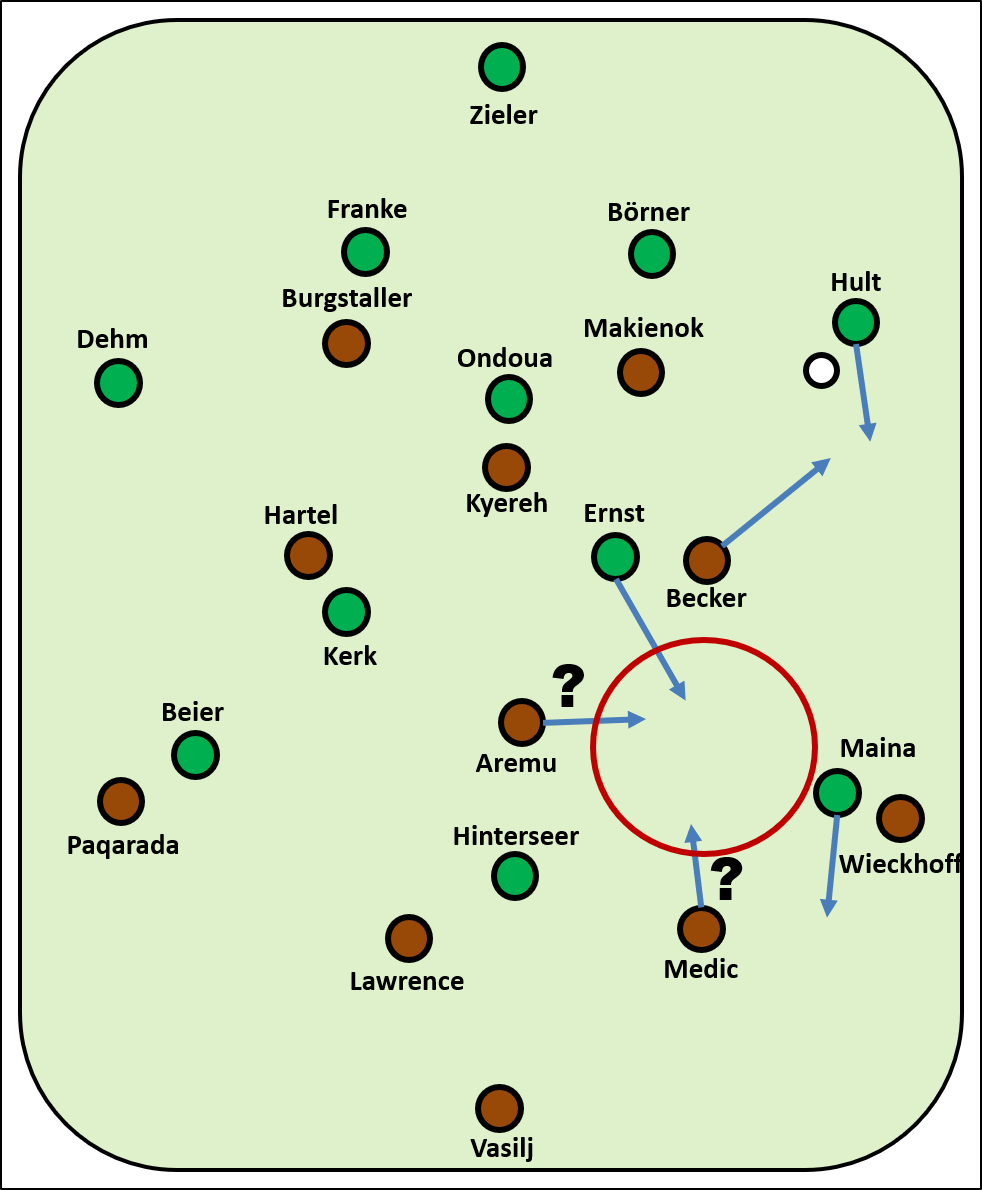
Der FC St. Pauli erlebte eine recht ungewohnte Spielsituation: Die Innenverteidiger hatten enorm viel Zeit beim Spielaufbau. Hannover 96 stieg erst sehr spät ins Pressing ein, erwartete den FCSP erst in der eigenen Hälfte. Ein Anlaufen der FCSP-Innenverteidigung war nicht vorhanden.
Mit diesem vielen Ballbesitz hatte der FCSP seine Probleme. Das lag vor allem daran, dass Hannover 96 im Mittelfeld komplett mannorientiert arbeitete. Es bildeten sich die Pärchen Ondoua/Kyereh, Hartel/Kerk und Becker/Ernst auf dem Spielfeld. Zudem gesellte sich Hinterseer zu Afeez Aremu, aber diese Deckungsaufgabe war wohl der entspannteste Job auf dem Spielfeld, da Aremu sich fast gar nicht am Spielaufbau beteiligte.
Ziel der ersten Phase des Spielaufbaus vom FC St. Pauli ist das kontrollierte Erreichen der eigenen Außenverteidiger. Bestenfalls über eine schnelle Seitenverlagerung, damit es etwas Raum gibt. Leart Paqarada und Jannes Wieckhoff positionierten sich dafür relativ hoch. Durch die Positionierung der offensiven Außenspieler von Hannover 96 war der direkte Passweg aus der Innenverteidigung zum eigenen Außenverteidiger nicht möglich. Um auf die Außenbahn zu gelangen, versuchte es der FC St. Pauli mit einer Art Relais-Station, was wie folgt funktionieren sollte: Die beiden Achter positionieren sich relativ hoch, laufen den Innenverteidigern dann entgegen, lösen sich dabei ein wenig von ihren Gegenspielern, werden dann angespielt und können dann auf die Außenbahn passen. Wenn alles ideal läuft, dann können sie sogar aufdrehen und die Seite verlagern oder eine Station zentral weiter zu Kyereh spielen.
Das ist die Theorie. In der Praxis war dies gestern der Knackpunkt. Denn Becker und Hartel schafften es in der ersten Halbzeit selten, wirklich viel zu selten, sich von ihren Gegenspielern zu lösen und sich in die Räume zu bewegen. Mag sein, dass die mannorientierte Verteidigung ihnen einige Probleme bereitete, aber ich habe auch nur zaghafte Bemühungen wahrgenommen sich dieser Bewachung zu entledigen. Ein Weg sich der Bewachung zu entziehen, ist die doppelte Besetzung einer der beiden Seiten. Das gab es vor allem am Ende der ersten Halbzeit ein paar Mal zu sehen, wenn Hartel sich auf die Seite von Becker gesellte. Das hat dann auch den schönen Nebeneffekt, dass auf der anderen Seite noch mehr Platz ist. Wenn der FCSP es dann geschafft hatte Leart Paqarada anzuspielen, hatte der richtig viel Raum. Aber wie bereits geschrieben: Die Bemühungen sich zu lösen, sie waren selten. Das Aufbauspiel des FCSP umgab daher eine eher ungewöhnliche Lethargie, bei der es zeitweise so wirkte, als würde sich niemand aus der Deckung wagen (im wahrsten Sinne des Wortes) und Verantwortung übernehmen.
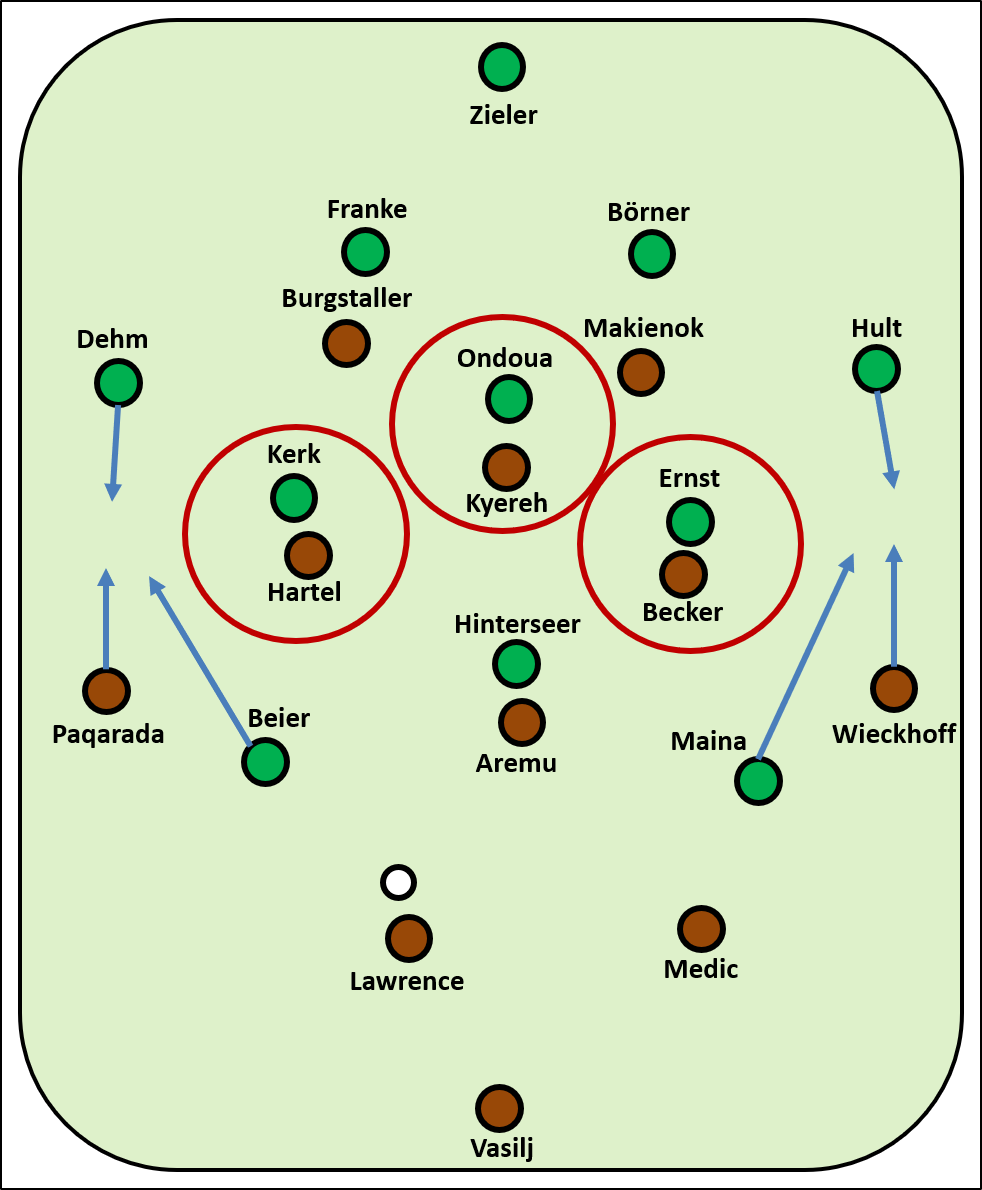
Die vorhandene Spielkontrolle bringt nichts
Das Aufbauspiel des FC St. Pauli verkam damit zu einem fast starren Gebilde. Etwas Unruhe bei Hannover 96 kam eigentlich immer nur dann auf, wenn James Lawrence den vielen Platz nutzte und sich mit dem Ball am Fuß nach vorne wagte. Das konnte er, da Hinterseer bei Aremu weilte und die offensiven Außen von Hannover auf die FCSP-Außenverteidiger fokussiert waren.
Aber es war eben nur James Lawrence, der andribbelte (Wyscout zählte vier „progressive runs„). Jakov Medić machte das nicht (entsprechend steht da in der gleichen Kategorie eine Null) und er spielte in der ersten Halbzeit eigentlich gar keine Pässe nach vorne, sondern es war immer Lawrence der das Spiel eröffnete. Das wunderte mich schon ein wenig, da ich Medić das durchaus zutraue, dass er sowas kann (sein Vorlage zum 3-1 im Derby ist ein gutes Beispiel). Aber vielleicht war das auch eine Vorgabe vom Trainer-Team. In der zweiten Halbzeit war er jedenfalls wesentlich aktiver am Spielaufbau beteiligt.
Genauso könnte es eine Vorgabe gewesen sein, dass Afeez Aremu sich nicht am Aufbauspiel beteiligt. Der hatte laut Wyscout keine einzige(!) Offensivaktion und spielte erheblich weniger Pässe nach vorne als das Duo Medić/Lawrence (nur zehn (gegen Regensburg doppelt so viele), Medić: 25, Lawrence: 31). Vielleicht sollte Aremu eher die Position halten, um für eine ausreichende Restverteidigung zu sorgen. Aremu hatte aber auch ein paar unglückliche Szenen zu Spielbeginn. Vielleicht fehlte in der Folge auch einfach der Mut für die Aktionen.
Das klingt jetzt alles eher düster. Ganz so dramatisch war es nicht. Der FCSP schaffte es schon einige Male in die Verlagerung oder erspielte sich Raum in der Zentrale. Nur wurde aus diesem Raum immer wenig gemacht, weil letzte Pässe nicht ankamen, der Ball in der Folge versprang, etc. Es war nicht die konzentrierte Defensivarbeit von Hannover, die für wenig Durchkommen des FCSP sorgte. Es war die eigene Lethargie gepaart mit Ungenauigkeiten, die dafür sorgte. So hatte der FC St. Pauli also sehr viel Ballbesitz (56% in der ersten Halbzeit), aber entwickelte wenig bis gar keine Torgefahr. Das offensive Trio Burgstaller/Makienok/Kyereh hatte in der ersten Halbzeit so wenig Ballaktionen wie noch nie in dieser Saison. Sie wurden schlicht viel zu selten erreicht.
Stattdessen waren es die Spieler von Hannover 96, die in der ersten Halbzeit mehrfach gefährlich vor dem Tor des FC St. Pauli auftauchten. Es waren zwar auch seltene Momente, aber die hatten es in sich. Entweder wurde Hannover durch Standards (hierzu zähle ich insbesondere Einwürfe) oder aber durch Umschaltmomente gefährlich. Gerade das Gegenpressing im letzten Drittel war einige Male erfolgreich und erbrachte mehrere Chancen. Eine davon war ein Ballverlust von Marcel Hartel, der in der Folge zu einer unglücklichen Kopfball-Weiterleitung von Jakov Medić führte und schlussendlich Sebastian Kerk den Ball wenige Zentimeter vor der Torlinie servierte. Mit einem 0:1 ging es in die Pause.
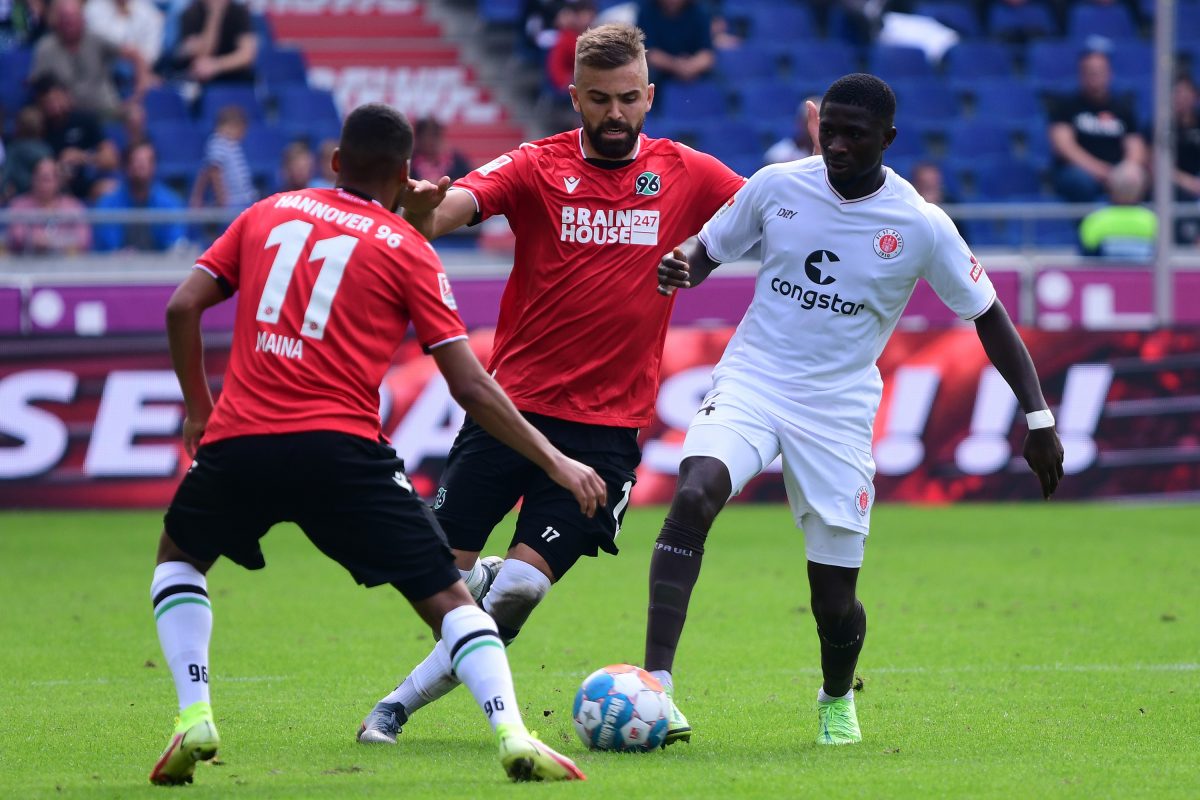
(c) Peter Böhmer
Die Umstellung bringt was
Es fehlte in der ersten Halbzeit also an Bewegung im Mittelfeld. Es fehlte an Spielern, die sich um den Ball bewarben und versuchten immer anspielbar zu sein. Gnadenlos ausgedrückt fehlte der Wille, den Ball haben zu wollen. Mit Anpfiff der zweiten Halbzeit stand der personifizierte Wille dann aber auf dem Platz:
Es kam Rico Benatelli für Simon Makienok ins Spiel. Das wirkte auf den ersten Blick wie ein defensiver Wechsel, war es aber nicht. Denn die Position von Makienok nahm Kyereh ein. Marcel Hartel rückte dafür auf die Zehn und Benatelli auf die linke Halbposition.
Das löste den Knoten im bis dahin doch recht pomadigen Aufbauspiel des FC St. Pauli. Rico Benatelli mag nicht der schnellste Spieler sein und ist sicher nicht geeignet für jegliche Pressing- und Umschaltsituationen. Aber er möchte immer, wirklich immer den Ball haben. Genau die Eigenschaft also, die in Halbzeit eins gefehlt hatte. Er holte sich häufig den Ball recht tief im linken Raum ab, also etwas zu tief für den gegnerischen Achter zum Mitziehen. Das konnte der Achter nicht, da im Zentrum nun nicht nur Hartel im Zehner-Raum agierte, sondern auch Kyereh sich immer wieder in diesen Raum fallen ließ. Somit generierte der FCSP ein Übergewicht im Zentrum, also eine Traum-Konstellation für das eigene Aufbauspiel. Dadurch hatte der FC St. Pauli nochmal mehr Ballbesitz (66% in der zweiten Halbzeit) und konnte Hannover 96 in deren Hälfte einschnüren.
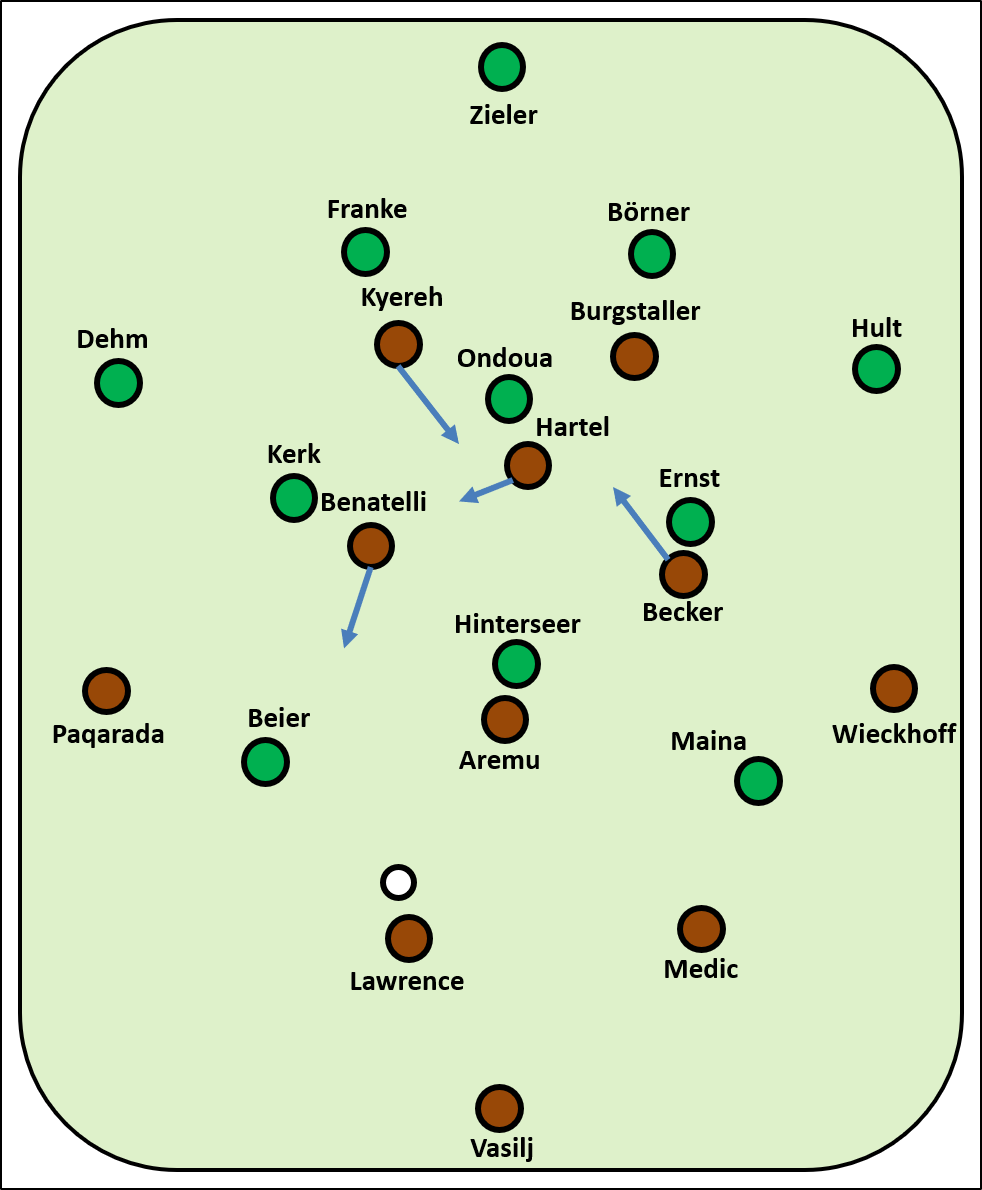
Die fehlende Torgefahr
Bei aller Liebe für den vielen Ballbesitz und so gut die Umstellung in der zweiten Halbzeit auch war, es fehlten die Torabschlüsse. Klar, es war eine Frage der Zeit bis diese kommen würden bei der Anzahl an guten Aktionen in der gegnerischen Hälfte. Aber meist konnte Hannover da irgendwie noch ein Bein reinwürgen in die Aktion und diese vereiteln.
Stattdessen erspielte sich Hannover 96 zu Beginn der zweiten Halbzeit die Chancen, weiterhin ausschließlich aus Umschaltmomenten und Standards. Der FC St. Pauli wurde erst gegen Ende des Spiels richtig gefährlich. Aber gerade als es richtig eng für Hannover wurde, war das Spiel schon so weit fortgeschritten, dass sich die Niedersachsen am Zeitspiel erlaben konnten (was ich gar nicht negativ meine – würde das bei dem Spielverlauf genauso machen).
Dass es am Ende überhaupt nochmal spannend wurde lag auch an Nikola Vasilj, der schon in der ersten Halbzeit teils überragend hielt. Ein Spieler, der mich weiterhin absolut überzeugt.
Ebenfalls überzeugt hat mich Jannes Wieckhoff. Der konnte bereits in der ersten Halbzeit einiges, in der zweiten Halbzeit aber noch viel mehr mit dem Raum auf der rechten Seite anfangen. Das ist schon richtig gut und ich denke, dass sich Luca Zander und Sebastian Ohlsson, wenn sie denn wieder fit sind (beide waren gestern nicht im Kader), schon richtig strecken müssen, um wieder in die Startelf zu kommen. Eine Entwicklung, die ich auf der Position nicht für möglich hielt.
Etwas am Fremdeln scheint Jackson Irvine noch zu sein. Die technisch anspruchsvolle Halbposition passt wohl nicht ganz so gut zu ihm, wenn das Spiel so läuft wie gestern. Dafür habe ich den Eindruck, dass er etwas mehr Torgefahr als Hartel und Becker zusammen ausstrahlt (was ja aber auch nicht sonderlich schwer ist). Ich denke, dass er besonders in solchen Spielen eine richtig gute Rolle spielen kann, in denen mehr Fokus auf die Umschaltmomente gelegt wird und weniger Ballgeschiebe kurz vorm gegnerischen Strafraum stattfindet.
Schon deutlich besser passt Christopher Buchtmann auf diese Halbpositionen. Man ey, wenn der mal länger als drei Monate verletzungsfrei bleiben würde…
Der FC St. Pauli verliert also in Hannover. Basierend auf dem Spielverlauf und dem Eindruck, dass die Spieler mehr hätten zeigen können, ist das richtig ärgerlich. Hannover 96 war nicht das bessere Team, aber hat eben aus sehr viel weniger deutlich mehr gemacht. So kommen dann auch diese Gesichter zustande:
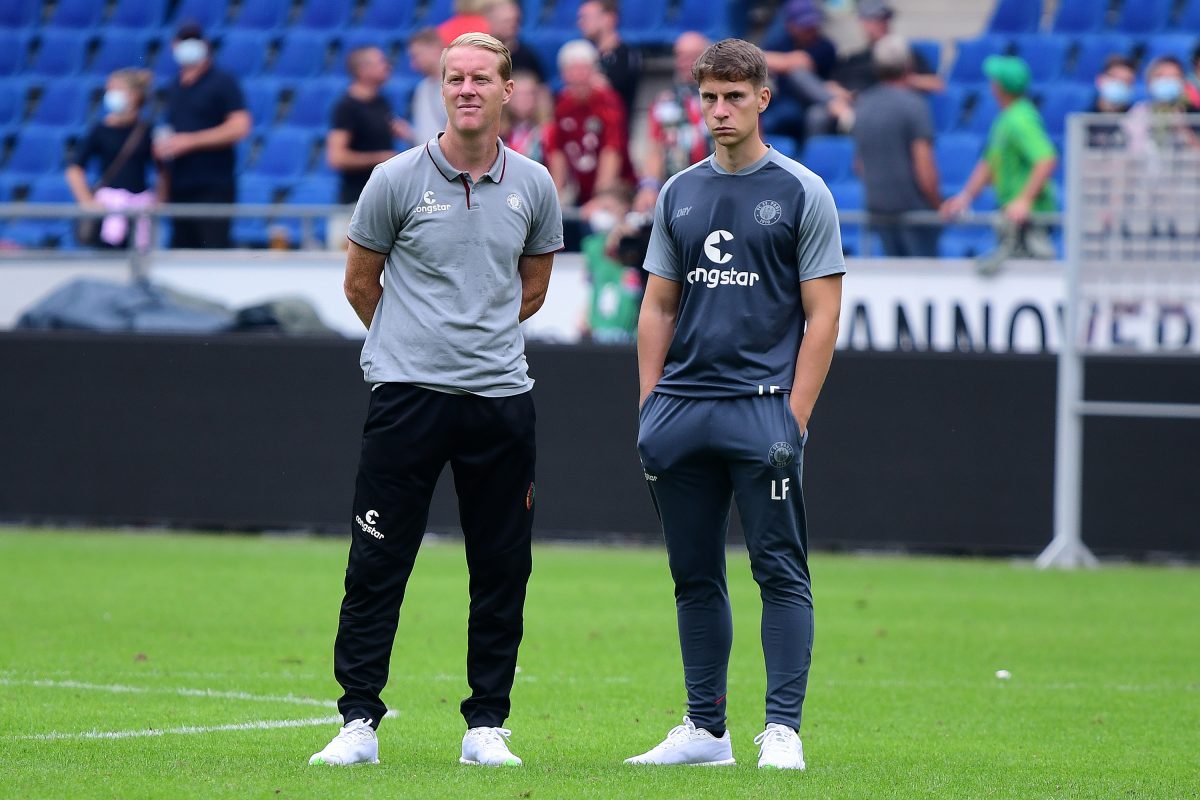
(c) Peter Böhmer
Der FC St. Pauli wurde nicht verhauen in Hannover, nicht auseinandergespielt. Eine so schwache Leistung, wie sie von vielen erkannt wurde, habe ich nicht gesehen. Aber es wurde mal wieder die Grenze aufgezeigt, dass es ohne maximalen eigenen Einsatz eben nicht reicht. So fehlte es sowohl offensiv an Initiative, als auch defensiv an den entscheidenden Schritten in Umschaltmomenten. Die Erkenntnis ist nicht neu, aber muss scheinbar immer mal wieder in Erinnerung gerufen werden. Und irgendwie ist das auch positiv, da es zeigt, dass der FCSP es selbst in der Hand hat. Daher: Mund abwischen, weitermachen!
Forza St. Pauli!
//Tim
Alle Beiträge beim MillernTon sind gratis. Wir freuen uns aber sehr, wenn Du uns unterstützt.
MillernTon auf BlueSky // Mastodon // Facebook // Instagram // Threads // WhatsApp // YouTube
{:}{:en}FC St. Pauli lost against Hannover 96 with 0:1. The biggest opponent was not necessarily Hannover 96, but their own lethargy. Thus, the many ball possession and the visually strong predominance brought relatively little, because hardly any scoring chances were created. Hannover 96, on the other hand, created quite a few chances despite having few ideas of their own. As a result, FC St. Pauli missed out on the leap to the top of the table and – not only because of this – put a severe damper on themselves.
(Cover picture: Peter Böhmer)
The line-up
As expected, FC St. Pauli did not change their line-up compared to the successful home match against Jahn Regensburg.
Hannover 96, on the other hand, changed five positions: Niklas Hult moved back to the left-back position. Jannik Dehm, who had replaced him in Darmstadt, moved to the right side of the defence and replaced Sei Muroya. In defensive midfield, newcomer Gaël Ondoua started for Dominik Kaiser. Maik Frantz only replaced Sebastian Kerk at the back eight position, as he injured his thigh shortly after kick-off. Hoffenheim loanee Maximilian Beier started on the offensive wing, replacing Philipp Ochs, and newcomer Lukas Hinterseer started in the centre of attack for Hendrick Weydandt.
Hannover 96 played in a 4-3-3 formation with two attacking wingers, two eights and a six. This formation takes FC St. Pauli’s 4-4-2 with a diamond relatively well, at least in the centre. It worked particularly well in the first half, but that was not due to the formation but to FCSP’s rather slack performance.
The (lack of) attitude?
Hannover 96’s build-up play did not create any danger for FC St. Pauli throughout the entire match. There were a few situations that could have been critical. This had to do with the role of the half positions, i.e. Finn Ole Becker and Marcel Hartel. They always moved out when the opposing full-backs were in possession of the ball. Behind them, Hannover’s eights, Kerk and Ernst, could move into the half-space or to the outside and had to be taken up by Afeez Aremu, which was not always successful. Aremu always had to make the decision in the defensive work whether to leave his central position and move into the half-space or partly completely to the outside, or whether to hold his position and allow an overflow on the outside.
Fortunately, he did not have to make this decision too often, because Hannover 96 actually almost never played out these situations consistently. If the eights had moved more consistently to the outer lanes, the FCSP central defence would also have had to venture out of its position much more often so that there would have been access on the side. Quite a lot of „would have“ in that sentence. Because both Kerk and Ernst did not go all the way out most of the time, FCSP was able to keep Hannover 96’s build-up play under control. Hannover 96 only created a scoring threat through switching moments and standards. When things got dicey in open play, they could actually rely on Aremu (71% of duels won), Medić (83%) and Lawrence (88%) defensively.

FC St. Pauli experienced a rather unusual game situation: The centre-backs had an enormous amount of time to build up the game. Hannover 96 started pressing very late and expected FC St. Pauli to be in their own half. There was no running at the FCSP centre backs.
FCSP had its problems with this much possession. This was mainly due to the fact that Hannover 96 worked completely man-oriented in midfield. The pairs Ondoua/Kyereh, Hartel/Kerk and Becker/Ernst formed on the pitch. In addition, Hinterseer joined Afeez Aremu, but this covering task was probably the most relaxed job on the pitch, as Aremu hardly took part in the build-up to the game at all.
The aim of the first phase of FC St. Pauli’s build-up is to reach their own full-backs in a controlled manner. At best via a quick lateral shift so that there is some space. Leart Paqarada and Jannes Wieckhoff positioned themselves relatively high for this. Due to the positioning of Hannover 96’s offensive wingers, the direct passing path from the centre back to their own wingers was not possible. In order to get to the outside, FC St. Pauli tried a kind of relay station, which should work as follows: The two eights position themselves relatively high, then run towards the centre-backs, break away from their opponents a little, are then played on and can then pass to the outside lane. If everything goes ideally, they can even turn up and shift the side or play one station centrally to Kyereh.
That is the theory. In practice, this was the crux of the matter yesterday. Becker and Hartel rarely, really far too rarely, managed to break away from their opponents in the first half and move into the spaces. It may be that the man-oriented defence caused them some problems, but I also only noticed timid efforts to get rid of this guarding. One way of evading the guard is to double occupy one of the two sides. This could be seen a few times, especially at the end of the first half, when Hartel joined Becker. This then also has the nice side effect that there is even more space on the other side. When FCSP managed to play Leart Paqarada, he had a lot of space. But as already written: The efforts to break away were rare. FCSP’s build-up play was therefore surrounded by a rather unusual lethargy, in which it seemed at times as if no one would dare to break cover (in the truest sense of the word) and take responsibility.

The existing game control is of no use
The build-up play of FC St. Pauli thus degenerated into an almost rigid structure. The only time Hannover 96 had any trouble was when James Lawrence took advantage of the space and ventured forward with the ball on his foot. He was able to do that because Hinterseer was at Aremu and Hannover’s attacking wingers were focused on the FCSP wing-backs.
But it was only James Lawrence who dribbled forward (Wyscout counted four „progressive runs“). Jakov Medić did not do that (accordingly, there is a zero in the same category) and he did not actually play any passes forward in the first half, but it was always Lawrence who opened the game. I was a bit surprised about that because I really trust Medić to be able to do that (his assist for the 3-1 in the derby is a good example). But maybe that was also a requirement from the coaching team. In the second half, he was much more active in the build-up to the game.
It could also have been a requirement that Afeez Aremu was not involved in the build-up play. According to Wyscout, he had not a single(!) offensive action and played considerably fewer passes forward than the Medić/Lawrence duo (only ten (twice as many against Regensburg), Medić: 25, Lawrence: 31). Perhaps Aremu should rather hold the position to provide sufficient residual defence. Aremu also had a few unfortunate scenes at the start of the game. Perhaps there was simply a lack of courage in the actions that followed.
That all sounds rather gloomy now. It was not quite that dramatic. FCSP managed to shift the ball or create space in the centre a few times. It was just that little was ever made of this space because final passes didn’t arrive, the ball was lost as a result, etc. It was not Hannover’s concentrated defensive work that ensured that FCSP had little chance to get through. It was their own lethargy coupled with inaccuracies that caused this. So FC St. Pauli had a lot of possession (56% in the first half) but developed little to no scoring threat. The offensive trio Burgstaller/Makienok/Kyereh had as few ball actions in the first half as never before this season. They were simply reached far too rarely.
Instead, it was the players of Hannover 96 who appeared dangerously in front of the FC St. Pauli goal several times in the first half. These were also rare moments, but they were quite effective. Either Hannover became dangerous through standards (I count throw-ins as such) or through switching moments. Especially the counter-pressing in the last third was successful several times and produced several chances. One of them was a ball loss by Marcel Hartel, which subsequently led to an unfortunate header forwarded by Jakov Medić and finally, Sebastian Kerk served the ball a few centimetres before the goal line. With a 0:1 it went into the break.

(c) Peter Böhmer
The changeover brings results
Rico Benatelli came in for Simon Makienok. At first glance, this seemed like a defensive change, but it was not. Kyereh took Makienok’s position. Marcel Hartel moved to the ten and Benatelli to the left half position.
This loosened the knot in FC St. Pauli’s previously rather pomaded build-up play. Rico Benatelli may not be the fastest player and is certainly not suited for any pressing or switching situations. But he always, really always wants to have the ball. Exactly the quality that had been missing in half-time one. He often got the ball quite deep in the left area, a bit too deep for the opposing eighth to pull along. The eighth could not do that, because in the centre not only Hartel was now operating in the ten-man space, but Kyereh was also dropping into this space again and again. Thus, FCSP generated an overweight in the centre, a dream constellation for their own build-up play. As a result, FC St. Pauli again had more possession (66% in the second half) and was able to close in on Hannover 96 in their half.

The lack of scoring power
For all the love for all the possession and as good as the change in the second half was, there was a lack of goals. Of course, it was a question of time until they would come, given the number of good actions in the opponent’s half. But most of the time, Hannover somehow managed to get a leg up on the action and thwart it.
Instead, Hannover 96 created chances at the beginning of the second half, still exclusively from transition moments and set pieces. FC St. Pauli only became really dangerous towards the end of the game. But just when things got really tight for Hannover, the game had already progressed so far that the Lower Saxons were able to enjoy time play (which I don’t mean in a negative way at all – I would do the same in the course of the game).
The fact that it got exciting at all, in the end, was also due to Nikola Vasilj, who made some outstanding saves in the first half. A player who continues to convince me.
Jannes Wieckhoff also convinced me. He was already able to do a lot in the first half, but in the second half, he did even more with the space on the right side. That’s really good and I think that Luca Zander and Sebastian Ohlsson if they are fit again (both were not in the squad yesterday), will have to really stretch themselves to get back into the starting eleven. A development that I didn’t think was possible at that position.
Jackson Irvine still seems to be a bit of a stranger. The technically demanding half position probably doesn’t suit him that well if the game goes as it did yesterday. On the other hand, I have the impression that he is a bit more dangerous in goal than Hartel and Becker together (which is not that difficult). I think he can play a really good role especially in games where there is more focus on the transition moments and less ball pushing just outside the opponent’s penalty area.
Christopher Buchtmann fits much better in these half positions. Man ey, if he could stay injury-free for more than three months…
So FC St. Pauli loses in Hannover. Based on the course of the game and the impression that the players could have shown more, this is really annoying. Hannover 96 was not the better team, but they made much more out of much less. That’s how these faces come about:

(c) Peter Böhmer
FC St. Pauli was not beaten up in Hannover, not played apart. I didn’t see such a weak performance as many people saw. But once again the limit was shown that without maximum effort it is not enough. There was a lack of initiative offensively as well as defensively in the decisive steps in the transition moments. This is not a new insight, but it seems to be necessary to remind people of it every now and then. And somehow it’s positive because it shows that FCSP has it in its own hands. Therefore: Wipe your mouth, keep going!
Forza St. Pauli!
//Tim (translation by Arne)
MillernTon Twitter //
MillernTon YouTube //
MillernTon Facebook //MillernTon Instagram //
If you like what we do here, here you’ll find the information on how to support us.
{:}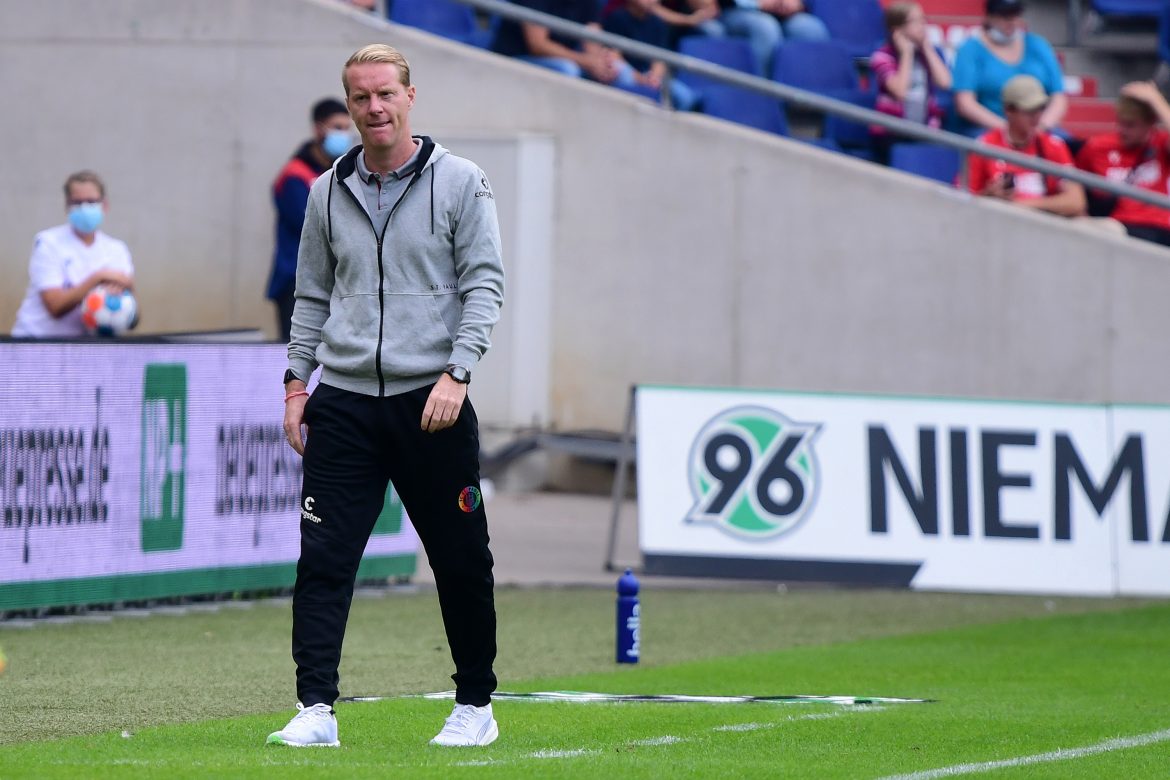

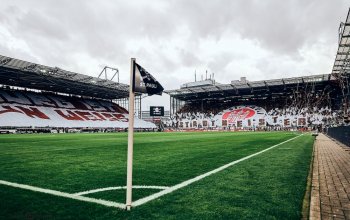
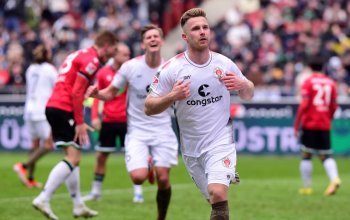
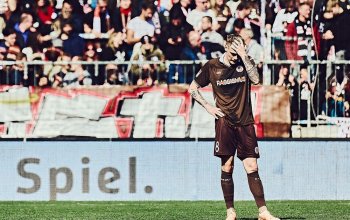
Moin Tim,
vielen Dank für deine – wie immer- interessante Analyse!
Wir hatten gestern im Stadion den gleichen Eindruck: Zu wenig Einsatz und zu ungenau im Zusammenspiel.
Ich fand uns auch häufig zu langsam im Aufbau, so dass Hannover immer genug Spieler in der Defensive sortiert hatte.
Ja, bis auf Wieckhoff und Vasilj hatten gefühlt alle Spieler einen schlechten Tag.
Dein Resümee verbessert die Stimmung aber deutlich: Wir haben im Grunde alles selbst in der Hand!
Forza und Liebe Grüße
Genau so ist es: Ich habe den Eindruck, dass der FCSP sich aktuell nur selbst schlagen kann. Das ist schon ein großer Unterschied zu den Vorjahren.
Moin Tim,
danke für die schöne Analyse, du hast leider den wichtigsten Aspekt vergessen, das Torwart Trikot.
Ich bleibe bei meiner These aus der letzten Saison Torhüter mit drittem Trikot geht nicht gut aus.
Bitte mal bei der nächsten Pressekonferenz mal ansprechen das sind die Wichtigen fragen die wir gerne beantwortet haben wollen 😉
Forza
Ist notiert 😉
Danke für die Analyse!
Besonders bei zwei Aspekten finde ich mich wieder:
Die „Quasi-Manndeckung“ hat uns überrascht und unsere Jungs wussten nicht wie sie damit umgehen sollen.
Am Ende war es für mich zu viel zentrales Mittelfeld. Eigentlich waren vier gelernte 8/10er dann drauf.
Viele Grüße
Mit Wieckhoff und Dittgen böte der Kader theoretisch auch offensive Außenbahnspieler. Vielleicht werden wir demnächst mal wieder ne Dreierkette sehen
Moin, ich habe bei Becker & auch bei Kofi eine gewisse Müdigkeit (auch im Kopf) gesehen, die vielleicht auf die Länderspiel-Einsätze zurückzuführen sind?! Kann es sein, das die damit verbundenen Reisen/Spiele/Belastungen doch ein bisken viel waren? Wir würdest Du das einschätzen?
Mmh, schwierig einzuschätzen. Kofi war ja bereits am Montag zurück auf dem Trainingsplatz. Wenn überhaupt, dann ist es eher ne Müdigkeit im Kopf, würde ich schätzen. Aber es gab ja durchaus schon Beispiele, wo die Einladung zu Länderspielen zu schwerwiegenden Kofverdrehungen führten (ich denke da an Aziz Bouhaddouz).
ja, wohl eher ´ne Kopfsache … ja, bei Aziz war das nicht gerade das erhoffte Sprungbrett!